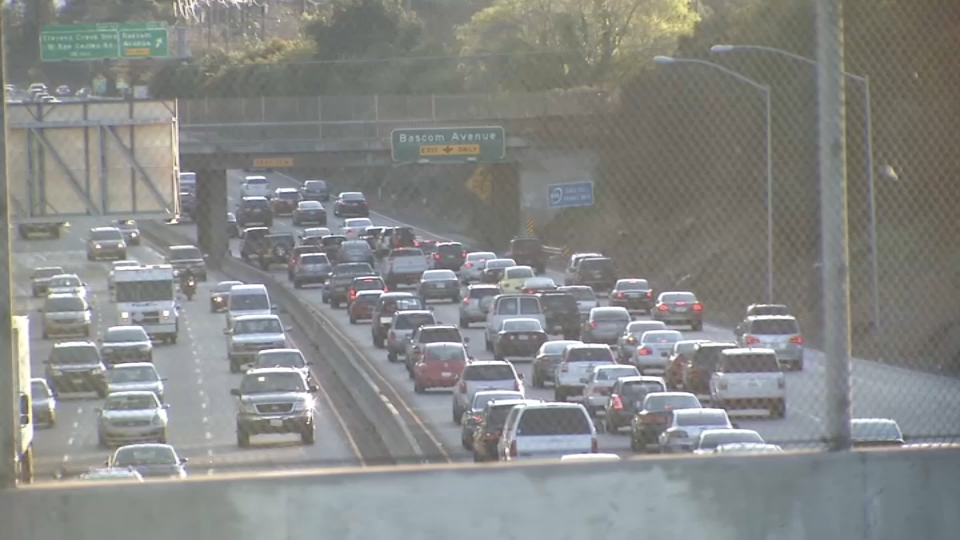Think the BART labor dispute is over? Think again.
Late Friday, the BART Board of Directors voted 7-1 in closed session to send the general manager back to the bargaining table with the unions to work out one final labor issue.
“We’ve reviewed the chronology of events concerning section 4.8 and are convinced that it was never the District’s intention to include the disputed Family Medical Leave Act proposal in the contract. We’ve also reviewed the preliminary costing of the proposed benefit. We are not comfortable with the potential liability that could result from the adoption of this contract provision," the BART statement read.
Leaders from both unions who have been in negotiations with BART for months and who thought they had a deal were clearly disappointed by the move.
Amalgamated Transit Union 1555 president Antonette Bryant held a news conference Saturday to respond and said she is "horrified" that the district would ask to return to the bargaining table after all both sides had gone through.
Bryant put the blame squarely on BART general manager Grace Crunican.
"Refusal by the Board to approve this contract is a failure. And this failure falls directly at the feet of Grace Crunican," Bryant said.
SEIU Local 1021 Executive Director Peter Castelli said it would likely be a few days before his union made a decision on how to respond. "We're not ruling anything out, but we're not inclined to go back to the bargaining table,'' Castelli said.
The issue at hand concerns paid family medical leave. Under the current policy, BART workers get up to 12 weeks of unpaid leave when they need to care for a sick child, spouse or parent, management said.
Local
BART management says it did not agree to provide the leave to employees and that provision was "inadvertently" included in the final labor package.
Under the current family leave policy, BART workers get up to 12 weeks of unpaid leave when they need to care for a sick child, spouse or parent, management said.
BART officials said employees use vacation, sick time or floating holidays to pay for the time that they are away from work.
However, they said the disputed proposal would require the transit agency to provide additional paid leave for six of the 12 weeks allowed for family medical leave.
BART officials said the paid family leave provision would add to the estimated $67 million cost of the current contract proposal, which includes a combination of wage increases, employee contributions to their health care and pension benefits and work rule changes they believe will make the agency run more efficiently.
The tentative agreement was reached on Oct. 21 and ended a four-day strike by employees. Employees also went on strike for four and a half days at the beginning of July before returning to the bargaining table.
The members of both unions voted by overwhelming margins two weeks ago to approve the tentative agreement and it was expected that the BART board would approve it without controversy at its meeting next Thursday.
ATU 1555 President Antonette Bryant issued the following statement Saturday:
“Today, the BART Board of Directors chose to walk away from a deal it negotiated with our attorneys and leaders over a six month span.
On behalf of our riders, our members and the entire Bay Area, we are angered, shocked and disappointed.
Let’s be clear. This move marks another failure of Grace Crunican. Grace Crunican hired Tom Hock to negotiate on BART’s behalf. Grace Crunican sent Assistant General Manager Paul Oversier, and Labor Relations Manager Rudy Medina to negotiate as well.
Each of these individuals negotiated and signed many agreements over many months, including one that provided Family Medical Leave. Refusal by the Board to approve this contract is a failure. And this failure falls directly at the feet of Grace Crunican.
The people of the Bay Area elected the Board of Directors to represent them, not hold them hostage.
We expect the BART Board to do its part and approve this contract.”
SEIU 1021 Executive Director Pete Castelli released the following statement regarding the BART board's announcement Friday night:
“After telling the thousands of riders and their workers that we had a fair agreement, BART Management has pulled the rug from underneath the unions and the Bay Area today by going back on their word and urging the BART Board of Directors to turn this agreement down.
Singling out a tentative agreement they prepared and agreed to in July and citing over-inflated numbers, BART Management is trying to hit the reset button and renege on the agreement that their $399,000 chief negotiator bargained for them.
Make no mistake: there was no confusion or glitch in the agreement. BART’s high-priced chief negotiator Thomas Hock, Assistant General Manager Paul Oversier, and Labor Relations Manager Rudy Medina, signed an agreement that would allow BART workers time off to care for their family members with a serious illness.
But once again, BART Management is moving the goal post to a fair agreement.
Once again, the workers and the riders have been played by a management team simply unwilling to settle this contract.”
Some BART riders are fearful a strike could cripple their commute for a third time this year.
"I've always thought it was strange that they can strike like this," BART rider Kevin Lee said. "It throws everything into chaos and everyone doesn't know what they're going to do."
BART claimed the provision in question could cost the transit agency as much as $44 million over four years, but the unions said the figure is more like $5.6 million.
"This is for people bonding with a child, or a seriously ill parent, spouse or child," Bryant said. "Everyone at BART does not have that scenario. We're talking about a very small number of folks."
A BART spokesperson would not go on camera tonight, but insisted the inclusion of the provision in the contract was a mistake.
"It was a document created in error and mistakenly signed in a stack of tentative agreements," the BART spokesperson said.
Several BART riders NBC Bay Area spoke to said they are so fed up they would support a measure to outlaw transit strikes in California.
"It's not fair to citizens...to have to go through this over and over again," BART rider Sharon Lee said. "It's as criminal as letting the government shut down."
Bay City News contributed to this report.



